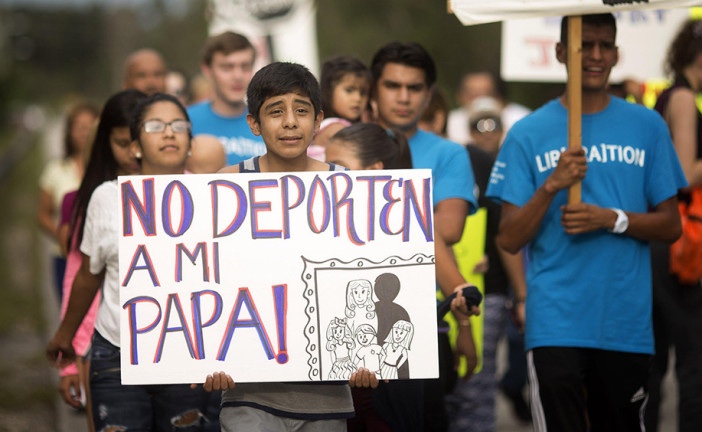DHS Ends Policy Designed to Protect Undocumented Parents from Deportation
Photo Credit: Immigration Equality
Trump Administration Reverses DAPA Programs
On June 15, 2017 the Department of Homeland Security (DHS) announced it would end the Deferred Action for Parents of Citizens and Lawful Permanent Residents, commonly referred to as DAPA.
What is DAPA?
DAPA was announced in November of 2014 by U.S. President Barack Obama. DAPA was designed to grant deferred action status to certain undocumented parents who have lived in the United States since 2010 and have children who are either American citizens or lawful permanent residents. Deferred action does not grant legal status, but allows three-year, renewable work permit and exemption from deportation.
DAPA was created as an extension of another executive order called Deferred Action for Childhood Arrivals or DACA. DACA allows undocumented immigrants who were brought to the US as children to legally work and reside in the U.S. DACA has benefitted approximately 75,000 since its implementation in 2012.
What Are the Qualifications for DAPA?
To request consideration for deferred action under DAPA, the alien must have satisfied the following criteria:
- as of November 20, 2014, be the parent of a U.S. citizen or lawful permanent resident;
- have continuously resided here since before January 1, 2010.
- have been physically present here on November 20, 2014, and when applying for relief;
- have no lawful immigration status on that date;
- not fall within the Secretary’s enforcement priorities; and
- “present no other factors that, in the exercise of discretion, make[ ] the grant of deferred action inappropriate.”
- The Memorandum also directed USCIS to expand the coverage criteria under the 2012 DACA policy to encompass aliens with a wider range of ages and arrival dates, and to lengthen the period of deferred action and work authorization from two years to three (“Expanded DACA”).
Immigrant Community in Houston Reacts to DAPA Rescinding
While DAPA was never officially enacted, millions of undocumented parents across the US were anxiously waiting for the program since 2014. Estimates approximate that there are 5 million undocumented immigrants that would have benefitted from the DAPA program.
Since the DHS announcement to roll back the program, immigrants across the US, including those in many Texas cities like Houston, Conroe, The Woodlands, and Pearland have passionately reacted.
Fearing deportation, many undocumented parents of United States citizen have been making arrangements to fix their status, including starting the green card process, applying for certain immigrant and nonimmigrant visas, and consulting experienced immigration attorneys about their legal options.
Many undocumented immigrants who are ineligible for immigration relief have been proactively preparing for deportation by drafting power of attorney documents and designating friends and family members as guardians for their children.
What Should I do If I am Undocumented in Texas?
If you are undocumented or do not have legal status in the United States, it is important to consult an experienced immigration attorney about your options.
Tatiauna Holland of the Holland Law Firm, PLLC is an experienced immigration attorney who will discuss all of your legal options, including applying for asylum, prosecutorial discretion, adjustment of status, citizenship and naturalization, and more.
Contact the Holland Law Firm, PLLC at (936) 539-6882 or submit an online form to schedule your confidential consultation today. We represent clients throughout Texas, including Houston, Conroe, Dallas, San Antonio, and surrounding areas.
DHS has published a frequently asked questions forum on their website. Read the Department of Homeland Security's official statements regarding the reversal of DAPA.
References:
CNN: Trump Administration Reverses DAPA "In House Cleaning", June 16, 2017
Nebraska TV: Undocumented Mother Reacts to DAPA Roll Back, June 21, 2017

